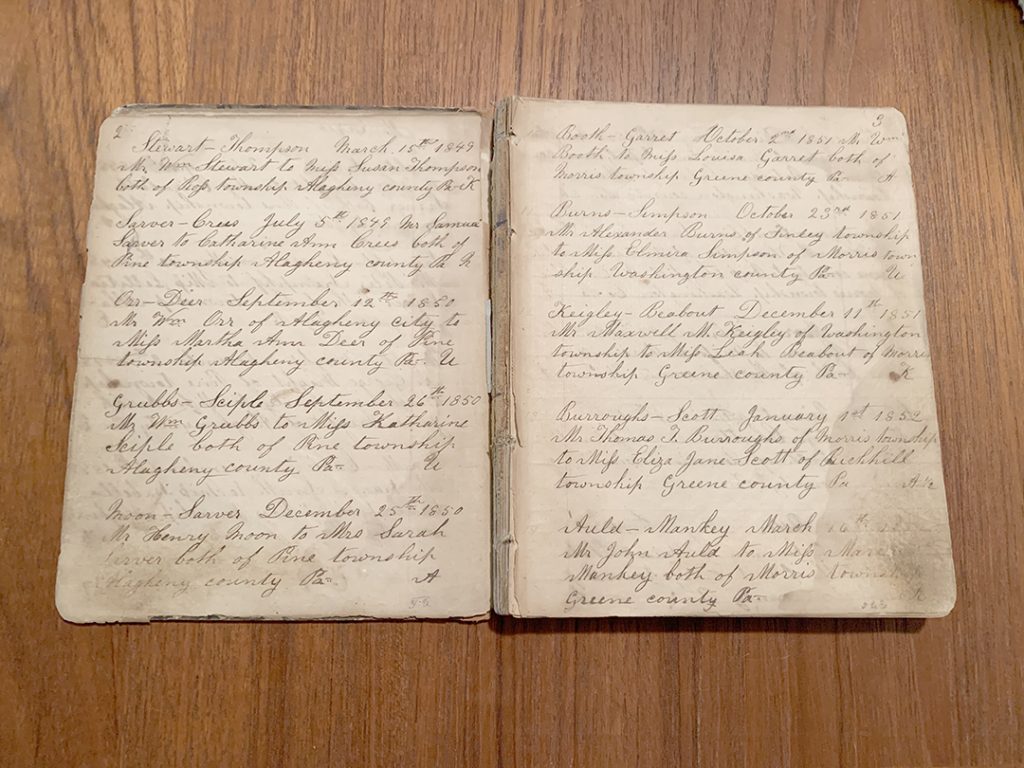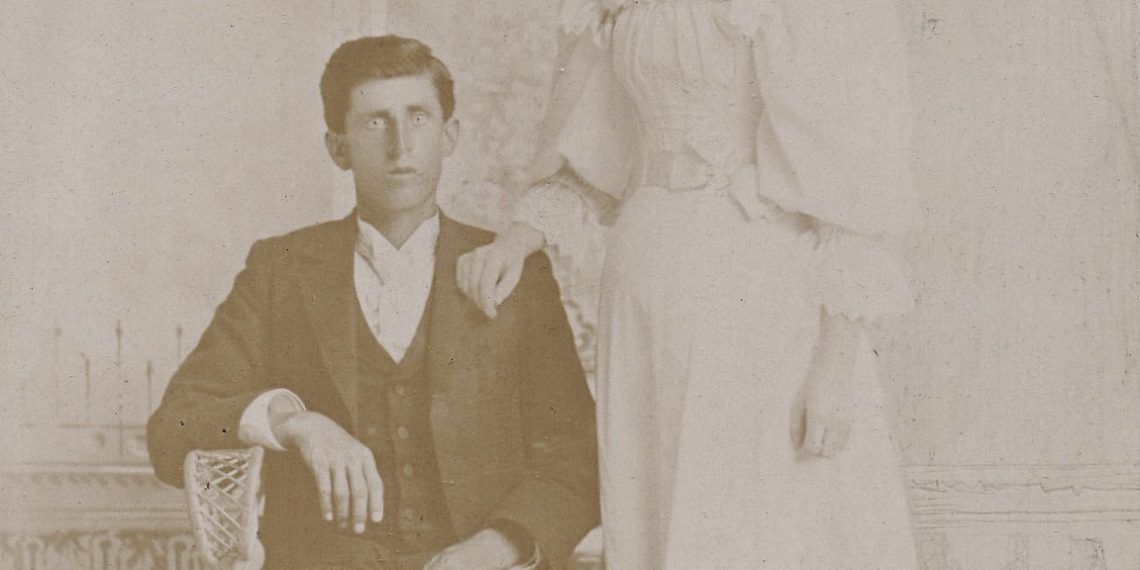Genealogical and historical research has been on the rise over the course of the last year. So many activities have been canceled and, especially through the winter, studying your roots has become a bigger pastime than it has been in the recent past.
In speaking with members and staff at our local archive repositories in Greene County, the museum’s staff has learned that questions available resources, how to find resources, and how to seek out information have increased.
Spring and summer have always been a popular time of year for weddings. The budding trees and the blossoming flowers provide a beautiful backdrop to weddings and hearken back to olden times when people were more in tune with the natural world around them. In early years, this trend was prominent, as weddings were celebrated by not only friends and families, but entire communities, and commonly after the nuptials were completed, a large celebration was held in the church yard, or at the family farm.
Tracking down the dates of these ancestral marriages can be challenging. It was not until 1885 that Pennsylvania required couples that get a marriage license to be filed with the Clerk of the Orphans Court in each county. In Greene County, you can find them at the courthouse in Waynesburg or on the Greene Connections website (https://www.greeneconnections.com) under the resource tab. These records were transcribed by Jim Fordyce and are an excellent resource if you are looking for information beginning in 1885 and through the 1920s.
The lack of a marriage license requirement in Pennsylvania often affects areas adjoining us outside of the state. It is well documented that throughout the 19th century, couples from West Virginia would hop the border into Pennsylvania to avoid having to get a license to wed.
What if you need something a bit further back, perhaps for a Sons or Daughters of the American Revolution application? This is where things get trickier, but there are resources that exist. Various church records have been discovered and are archived at Cornerstone Genealogical Society (http://www.cornerstonegenealogy.com) in Waynesburg. With enough Googling, a few Greene County church records can be found in transcribed form online. Some records have been found from the Goshen Baptist Church (Now the Corbly Memorial Church in Garards Fort) as well as the church that used to be on Whites Ridge just south of Waynesburg.
Both Cornerstone Genealogical Society and the Greene County Historical Society (https://www.greenecountyhistory.org) archive scrapbooks that contain newspaper clippings and notices of marriages throughout the county. These were usually compiled by a member of the family to keep a record of happenings within their family line, and often contain newspaper articles, birth announcements and deaths, as well as other interesting family memorabilia. Sadly, in many cases these date back no further than the late 19th century as well.
It takes a lot of digging, and many hours of dedicated research to locate marriage information prior to 1885, and unhappily, the further back in time you go, the harder it can be to find. Often, documentation simply doesn’t exist outside of a reference to a spouse in a will or a deed.
If you are seeking information on someone who served during the Civil War, or any war prior to World War I, and who lived long enough to be eligible to file for a pension, sometimes references to their marriage date and spouse are contained within those records. Civil War pension files often provide an exciting and informative glimpse into the life of an ancestor. To obtain Civil War pension, or other pension records, go to the National Archives Website (https://www.archives.gov) and click on the Veterans Service Records page to begin the process. There are fees associated with obtaining pension files, and they vary depending on the size of the file, but for the dedicated researcher the wealth of information can outweigh the cost of obtaining the files.
Revolutionary War pension files can sometimes contain marriage information. It has not been unheard of to find torn pages from family bibles used as evidence in a Revolutionary War pension to prove a relationship with a spouse.
 Occasionally other sources of records surface that can provide a wealth of information. Several years ago, a local researcher discovered an interesting item listed for sale on an internet auction site. It was a dusty and worn ledger with item description reporting that it related to Fayette County, Pennsylvania, but the researcher recognized names. This ledger once belonged to Reverend Luther Axtell, a minister born in Washington County in 1820, who by the early 1850s was living in Jacktown (Wind Ridge) in Richhill Township, Greene County. Rev. Axtell was a circuit preacher who gave sermons at several churches throughout Greene, Washington and Fayette counties, and this ledger not only gave accounts of what Scriptures he preached on at his various churches, but also listed all his marriages between 1848 and 1885.
Occasionally other sources of records surface that can provide a wealth of information. Several years ago, a local researcher discovered an interesting item listed for sale on an internet auction site. It was a dusty and worn ledger with item description reporting that it related to Fayette County, Pennsylvania, but the researcher recognized names. This ledger once belonged to Reverend Luther Axtell, a minister born in Washington County in 1820, who by the early 1850s was living in Jacktown (Wind Ridge) in Richhill Township, Greene County. Rev. Axtell was a circuit preacher who gave sermons at several churches throughout Greene, Washington and Fayette counties, and this ledger not only gave accounts of what Scriptures he preached on at his various churches, but also listed all his marriages between 1848 and 1885.
This was quite an exciting find that provided a great deal of information that had been unknown. The contents of this ledger were digitized, and a copy is archived at Cornerstone Genealogical Society. In recent years, the scanned pages were shared with the Greene Connections team and are available for viewing through the Archive Project.
Genealogical research can be very frustrating, but the digital age has made it possible to make many original sources and private collections available to the public. That is the goal of the Greene Connections Archive Project. The importance digital archives cannot be understated, and Greene County has a very good head start in that race!















